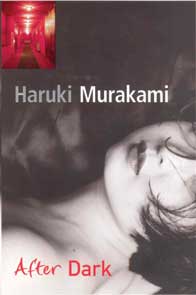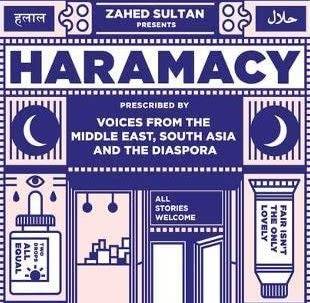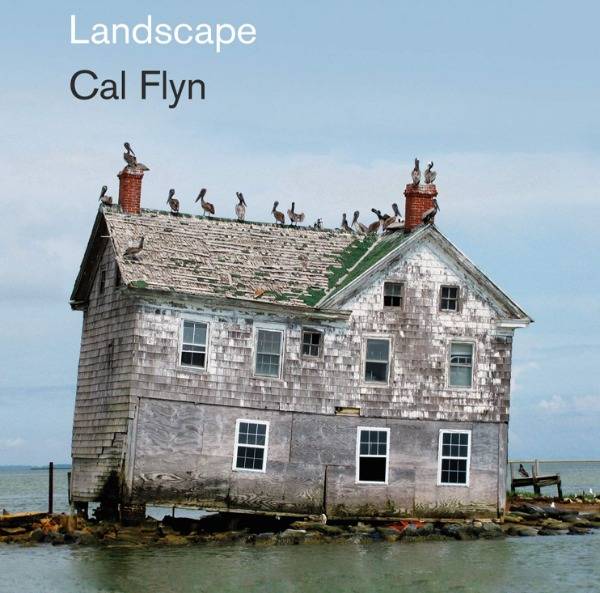Reviewing Haruki Murakami’s previous novel Kafka on the Shore, John Updike noticed that Murakami “describes his characters falling asleep as lovingly as he itemises what they cook and eat.” This is a characteristically acute observation, though Updike might have made more of it, for Murakami’s fiction is full of characters who either sleep too much or too little, and in some cases not at all. And Updike might also have pointed out that Murakami is as fondly attentive to the slow emergence into wakefulness as he is to the descent into sleep.
 Murakami’s new novel, After Dark, whose title alone signals the presence of these nocturnal preoccupations, is a case in point. It contains a strikingly delicate three-page description of someone waking up, beginning with the “reflexive twitching of the flesh of one cheek” and then scrupulously recording the spreading of scarcely perceptible muscle movements from the face to the rest of the body – as if the sleeper, a beautiful young woman named Eri Asai, is “groping uncertainly for the meaning of her own flesh”.
Murakami’s new novel, After Dark, whose title alone signals the presence of these nocturnal preoccupations, is a case in point. It contains a strikingly delicate three-page description of someone waking up, beginning with the “reflexive twitching of the flesh of one cheek” and then scrupulously recording the spreading of scarcely perceptible muscle movements from the face to the rest of the body – as if the sleeper, a beautiful young woman named Eri Asai, is “groping uncertainly for the meaning of her own flesh”.
That last formulation is typical, since it’s both a beautifully precise metaphor for the disorientating business of waking up and at the same time a reminder that Murakami is as interested in what one might call the metaphysics of sleep (its “meaning”) as he is in its phenomenology (the lavish anatomising of the sleeping body that so struck Updike).
In Kafka on the Shore, this metaphysical aspect is associated with the Japanese tradition of Shinto spirituality, which allows Murakami to indulge his celebrated taste for the fantastic (cats talk, it rains fish and a giant slug crawls across the floor of someone’s flat). By contrast, in After Dark these fantastic elements are much more severely rationed, and the first-person narration of Murakami’s longer, best-known novels, Norwegian Wood or The Wind-Up Bird Chronicle for example, is replaced by an affectless third-person cinematic, interspersed with reflections on the very possibility of a narrative point of view (what he calls “our viewpoint camera”).
Consequently After Dark has the atmosphere of a kind of metaphysical noir – all late-night coffee joints and disreputable hotels, an effect that is compounded by the translator’s decision to have all the characters speak in a slangy, zinging American English. In this it most closely resembles not Murakami’s large-scale surrealist fantasies but a short story of his entitled “Sleep”, in which the narrator, the wife of a Tokyo dentist, is unable to do precisely that – sleep. When the story begins, she hasn’t slept for 17 days. But this isn’t mere insomnia, for she isn’t claimed during the day by the kind of drowsiness that leaves you feeling like a “drowned corpse”. Indeed she is able to conceal her affliction from her husband and son. While her husband sleeps “like a turtle buried in mud”, she manically reads and rereads Anna Karenina, her mind floating “in its own inner space”, while her body goes “about its business”.
After Dark unfolds in the same in-between space, on the uncertain border between sleep and wakefulness. “Recognising and understanding the shadows,” one character says to another, “is what a healthy intelligence does.” This novel takes place entirely in the shadows, its action compressed into a span of just under seven hours.
Mari Asai is a Godard-loving adolescent girl, a student of Chinese at a university in Tokyo, and the novel opens with her alone in a coffee shop, late at night, having apparently fled the family home. She falls into conversation with Takahashi, a student and jazz musician, whom she has met only once before. As Mari prepares to spend the small hours reading, she is approached by the female owner of a local “love hotel” (called the Alphaville, naturally). She asks if Mari will translate for a wretched Chinese prostitute, who has been beaten up on her premises.
That episode is the motor for a thrillerish plot, but the real subject of the novel is sleep. Like the narrator in the short story, Mari can’t sleep, and so she takes to the streets instead. Other characters crave sleep as a kind of respite from the world: Shirakawa, the prostitute’s assailant, craves it as an escape from his guilt, Korogi, an employee at the Alphaville, wishes she could sleep so she wouldn’t “have to think about anything”. And in a series of disconcerting interludes, we watch Mari’s sister Eri sleeping, apparently on a television screen.
Eri, it emerges, confined herself to her bedroom two months earlier and hasn’t come out – her sleep is a kind of imprisonment, and it is the suffocating strangeness of this self-confinement that Mari is trying to escape.
At one point, the second-person narrative voice wonders what it would take to observe Eri from the other side of the screen: “All we have to do,” it says, “is separate ourselves from the flesh, leave all substance behind, and allow ourselves to become a conceptual point of view.” That’s as good a description as any of what Murakami has done in this peculiar, oddly weightless tale. ■
After Dark is published by Harvill Secker

